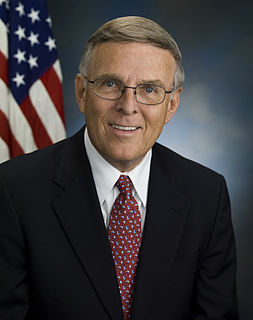A Quote by Kerry Kennedy
Over the years, Chevron has behaved in a way that reinforces the worst stereotypes about large corporations: it has cynically avoided responsibility for its past and watched in indifference as more people become sick and die because of its failure to deal with its legacy environmental issues.
Related Quotes
I want to seduce the audience. If they can go along for a ride they wouldn't ordinarily take, or don't even know they're taking, then they might see highly charged political issues in a new and unexpected way. . . . The theatre is now so afraid to face its social demons that we've given that responsibility over to film. But it will always be harder to deal with certain issues in the theatre. The live event - being watched by people as we watch - makes it seem all the more dangerous.
Winning slowly is another way of losing. Americans are screwing up our health care system again right now. That's going to cause grave trouble for people over the next five, 10 years. There are going to be lots of people who die, lots of people who are sick. It's going to be horrible. But 10 years from now it will not be harder to solve the problem because you ignored it for those 10 years. With climate change, that's not true. As each year passes, we move past certain physical tipping points that make it impossible to recover large parts of the world that we have known.
The gains we made in the United States that have made our country great have, in large part, been made over the opposition of major corporations. On nearly every issue, from fair labor standards, to the minimum wage, to environmental standards, to standards for a safe workplace, corporations have fought against them every step of the way.
I would love it if we made more comparisons between current issues and issues of the past. Maybe we'd realize that sometimes 'current issues' and 'past issues' are one and the same. Our world's people still fight over natural resources, kill in the name of religion, occupy regions and give them up - just as we did 'so long ago.'
In the years between 'Afterlight' and 'Legacy,' we see a Zu who has watched all of her older friends head out into the world to do meaningful work while she's made to wait and hang back because of her age. It reinforces a feeling in her that she's falling further and further behind and won't ever catch up to them.
But the past does not exist independently from the present. Indeed, the past is only past because there is a present, just as I can point to something over there only because I am here. But nothing is inherently over there or here. In that sense, the past has no content. The past - or more accurately, pastness - is a position. Thus, in no way can we identify the past as past
We have to deal with issues like inequality, we have deal with issues of economic dislocation, we have to deal with peoples fears that their children won't do as well as they have. The more aggressively and effectively we deal with those issues, the less those fears may channel themselves into counter-productive approaches that pit people against each other.
In the early 1970s, Milton Friedman argued that corporations should not be socially responsible because they had no mandate to be; they existed to make money, not to be charitable institutions. But in the economy of the 21st century, corporations cannot be socially responsible, if social responsibility is understood to mean sacrificing profits for the sake of some perceived social good. That's because competition has become so much more intense.
DURING THE PAST TWO TO THREE DECADES, we have acquired substantial evidence that most chronic diseases in America can be partially attributed to bad nutrition. Expert government panels have said it, the surgeon general has said it and academic scientists have said it. More people die because of the way they eat than by tobacco use, accidents or any other lifestyle or environmental factor.






































